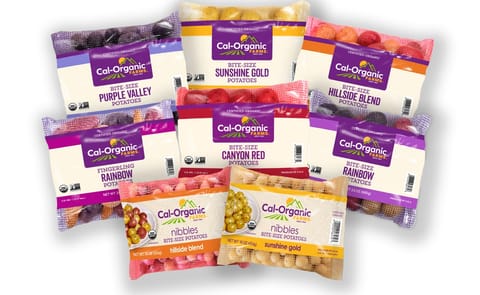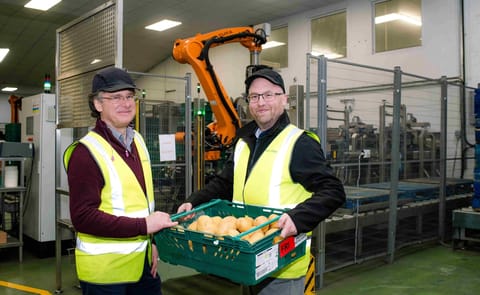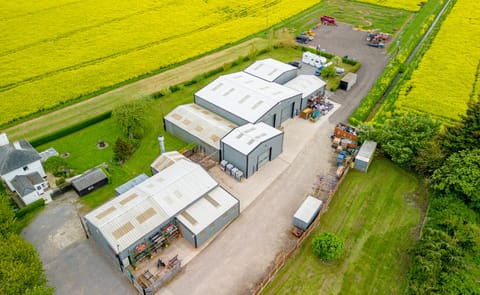William Chase lives a life dominated by potatoes. Hailing from a family of Herefordshire spud farmers, he is best known as the man behind Tyrrell's, the posh crisp brand sold to private equity for £30m in 2008.
The key to Tyrrell's was the story of crisps home-grown and hand-fried on a single farm. So too with Chase Distillery. As far from Smirnoff as white-sliced is from home-baked, Chase vodka is a connoisseur's drink so pure you don't get a hangover, says its effusive creator.
"Mass-produced brands taste like nail varnish remover because all the nasties are left in,"Mr Chase explains. "People like us are trying to produce something for people to sip, we don't want people wolfing it down like you see on EastEnders."
Quality is an intensive business. Chase vodka is made in a Heath Robinson-style distillery, bubbling homegrown Lady Claire and Lady Rosetta spuds through a traditional still with hand-controlled steam valves and a 70-foot copper rectification column. Intensive also means expensive. A single bottle of Chase – packed with up to 150 potatoes – sells for more than £30.
So far at least, there is no shortage of buyers. In its first year, sales reached £140,000. Two years on and the distillery is turning out 3,000 bottles each week and forecasting £1m in turnover. Next year, the plan is to crank up to more than 6,000 bottles, taking turnover up to £3m.
Potato vodka is still the company's biggest seller, but the distillery also makes apple vodka, apple gin, and a rainbow of fruit liqueurs. Everything is local. The potatoes all come from the combined 1,500 acres of Mr Chase's two Herefordshire farms, as does all the fruit for the liqueurs. The apples are grown in his 200-year old orchards. And after the first batch of marmalade vodka proved such a runaway success, there are now plans for citrus trees in polytunnels. Mr Chase is even trying to buy the Malvern water company from Coke, although the lack of response to his enquiries suggests that they don't really want to sell, he says.
Mr Chase is a man absolutely fizzing with ideas, rarely finishing a sentence before shooting off in another direction. Possible future products – from apple brandy, to parsnip vodka, to "home-grown"cosmetics made from distillation by-products – jostle for attention. As do a whole string of green schemes, such as using stillage to irrigate the fields (which is happening now) and building a bio-digester to power the distillery from potato peelings (which will be up and running next year).
Ultimately, apples might even replace potatoes altogether at Chase Distillery. The business logic is that apples do not require replanting every year. But there is also a personal angle. "I should say that I love potatoes, but I don't,"Mr Chase admits. "In fact I could quite easily say I hate them: potatoes have upset me, made me cry, and given me a bad back."
Solapas principales
William Chase explains why he does NOT love potatoes
¿Te gustaría recibir noticias como esta por correo electrónico? ¡Únete y suscríbete!
Get the latest potato industry news straight to your WhatsApp. Join the PotatoPro WhatsApp Community!
Empresa Destacada
Contenido Patrocinado
Contenido Patrocinado
Contenido Patrocinado
Contenido Patrocinado










